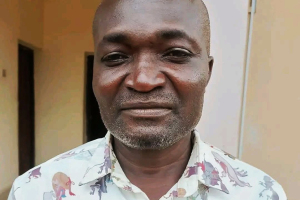Eritrea Denies Expelling Missionaries
Eritrea on Monday denied reports claiming that it had expelled 13 Roman Catholic missionaries, instead saying that their residence permits simply have not been renewed.
"It is purely a routine immigration issue," Yemane Gebremeskel, the director of Eritrean President Issaias Afeworki's office, told Agence France-Presse.
"These are people who do not have valid resident permits anymore. If you live somewhere and your residence permit has expired, and it is not renewed, then it is not renewed," he said.
Catholic news agencies last week accused the Eritrean government of forcing priests, nuns, and lay missionaries to leave the country within a two week deadline.
The missionaries, including one Kenyan, were given 14 days to leave the country starting on Nov. 6, "reliable sources" confirmed with Catholic Information Service for Africa (CISA).
CISA sources claimed that the expulsion was part of a larger plot to destroy the Catholic Church in the country. Roman Catholicism has been present in Eritrea for more than a century, and according to estimates makes up nearly five percent of the population.
More than 90 percent of Eritrea's 4.6 million people belong to one of four religions officially recognized by the government – Islam, Orthodox Christianity, Roman Catholicism and Lutheranism.
According to human rights groups, the government closed all churches in 2002 except those belonging to the four recognized religious denominations.
The government is highly suspicious of newer Christian movements such as the Evangelical and Pentecostal churches and frequently harasses their followers.
Yet an estimated 2,000 Eritrean are members of unregistered "illegal" evangelical church groups that the Eritrean government has increasingly cracked down upon in recent years.
Recently, Eritrea has even cracked down on the Orthodox Church, which it previously had a close relationship with.
The head of the Eritrean Orthodox Church – former Patriarch Abune Antonios, 80 – was illegally dismissed from his position in January 2006 after criticizing the government for interfering in church activities and for its persecution of evangelical churches, according to human rights group Amnesty International. For nearly two years he has been under stringent house arrest with little news heard about his condition in the past few months.
The U.S. Commission on International Religious Freedom in May had again recommended that Eritrea be re-designated by the U.S. State Department as one of the 11 "countries of particular concern" (CPCs) for 2007. The State Department for three straight years has designated Eritrea as a CPC – the worst label for religious freedom violators.



























